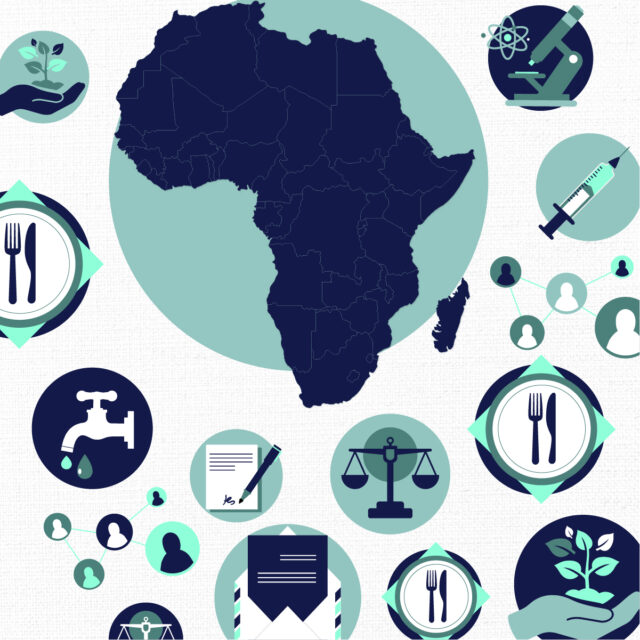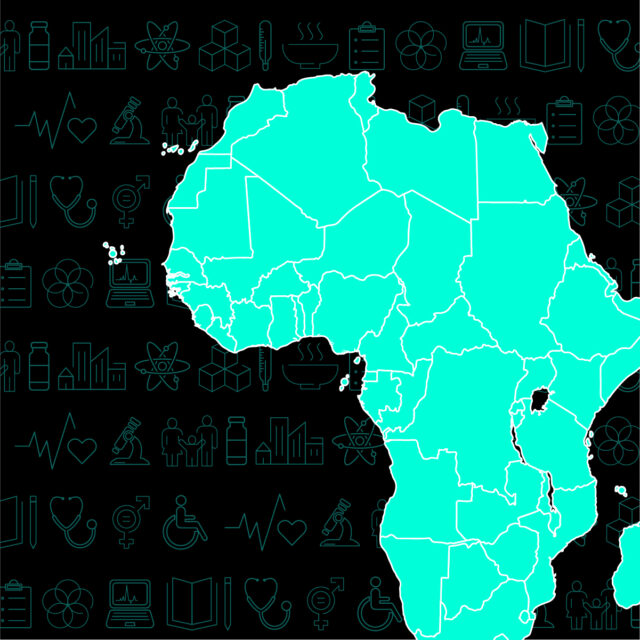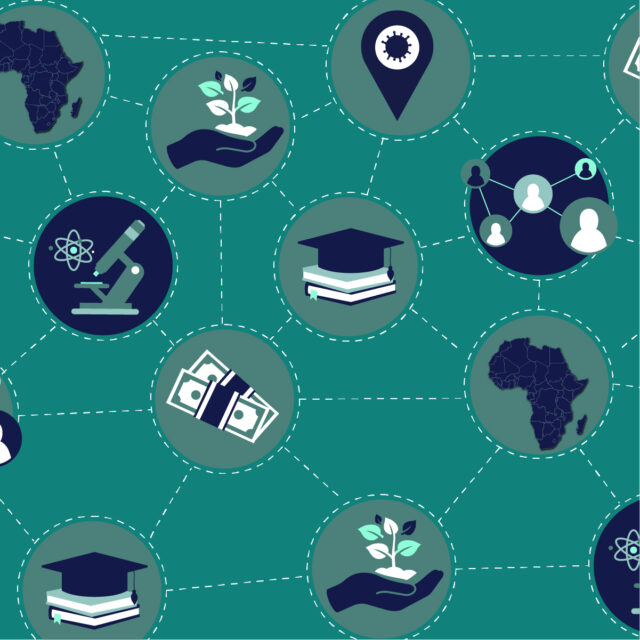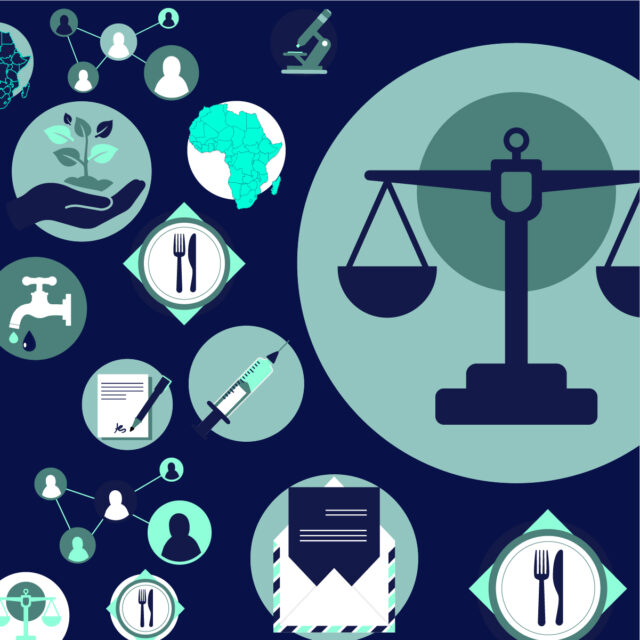Top news
Feeling charitable: Pfizer will provide patents on a not-for-profit basis for new and existing medicines and vaccines available in the US or EU to 45 lower-income countries. Rwanda, Ghana, Malawi, Senegal, and Uganda are first in line to join the “Accord for a Healthier World”, announced at the World Economic Forum annual meeting in Davos. The accord currently includes 23 medicines and vaccines that treat infectious diseases, some cancers, as well as rare and inflammatory diseases. It’s a welcome move but is more of a “band aid on a bullet wound” fix rather than a systemic solution. It also raises questions about Pfizer’s longstanding efforts to undermine generic drug production, particularly in middle-income countries. Meanwhile, Moderna CEO Stéphane Bancel – whose net worth is an estimated $4.6 billion – announced he will donate stock options currently valued at $355 million to charity. If only the company he leads had been equally magnanimous in ensuring vaccine equity…
Forget-me-not: Amidst increasing COVID-19 cases in nearly 70 countries, the WHO’s Director-General Tedros Adhanom Ghebreyesus cautioned that the pandemic is “most certainly not over.” Political, operational, and financial barriers continue to hinder achieving the WHO’s 70% vaccination target. COVID-19 vaccination rates are under 13% in low-income countries, in part due to government policies and decisions that Winnie Byanyima, Executive Director of UNAIDS, labelled as “racist”.
WHO news: WHO member countries this week agreed to a modified WHO funding model intended to fortify the organisation’s stability and independence. It will gradually increase countries’ membership dues to 50% of the WHO’s core budget by 2030-31, up from 16% in 2020-21. Meanwhile, a US-led proposal to strengthen aspects of the International Health Regulations to improve global health security received pushback from African countries at this week’s 75th World Health Assembly. They contend that the proposed reforms be considered as part of a future “holistic package”.
Sky-high: Nigeria’s central bank increased interest rates to 13% to tame inflation, which hit nearly 17% in April. Development finance loans will remain at 5% until 2023. The move comes after the US Federal Reserve increased its interest rate by 0.5% earlier this month, which was predicted to cause a ripple effect around the world. Since then, rates have increased in major economies, including the UK, Australia, and several Gulf States. Nigeria’s central bank governor lowered Nigeria’s 2022 growth projections from 4.2% to 3.25%.
For whom the warning bell tolls: 10% of riskier “junk”-rated emerging market countries could suffer debt crises this year, driven by rising borrowing costs and the war in Ukraine, JPMorgan analysts warn. Three African countries – Ethiopia, Rwanda, and Senegal – could experience reserve depletion by the end of next year, signalling high default risk. A record 27 emerging market countries – including 10 in Africa – have eurobond yields above 10%, an indication of the high borrowing costs those governments face, an ill omen. Twenty-three African countries are either in, or at high risk of, debt distress. Amidst concerns that an anti-African bias at Western credit rating agencies raises borrowing costs, the African Union is calling for the creation of a Pan-African credit agency.
Drowning in debt: Zambia’s debt service repayments are projected to more than triple in 2022 compared to pre-pandemic levels. The Common Framework, designed by the G20 to offer a permanent solution to structural debt problems, is yet to provide participants (Chad, Ethiopia, and Zambia) any form of debt relief. In 2019, Zambia spent nearly twice as much on debt service repayments than on healthcare. Without debt relief and restructuring, rising debt service repayments will continue to absorb resources that are vital to stimulate a recovery from the pandemic. Legislation recently introduced in New York would require private creditors to participate in the G20 and other international relief processes. 👏
Guilty Glencore: Two subsidiaries of Glencore, a multinational commodity trading and mining company, have pled guilty to a years-long bribery campaign in seven countries, including five in Africa. Between 2007 and 2018, Glencore and its subsidiaries paid more than $100 million “to secure improper advantages to obtain and retain business” in Cameroon, DRC, Ivory Coast, Equatorial Guinea, and Nigeria, according to a US Department of Justice statement. The companies agreed to pay over $1.1 billion to resolve the case and a separate price manipulation scheme. Glencore, a major player in numerous African countries’ oil and mining sectors, is owed one-third of Chad’s $3 billion of external debt, most of which stems from oil-for-cash deals.
Food channel: The UN General Assembly adopted a resolution on the mounting international food crisis, calling on G7 and G20 countries to prioritise food security and to refrain from hoarding food and commodities. The US announced an additional $215 million in emergency food assistance, taking its total contributions to $2.6 billion since the war in Ukraine began. The African Development Bank approved $1.5 billion for an emergency food production facility aimed at helping 20 million African smallholder farmers. Taking a different approach, the UK cut its humanitarian aid by half “at the worst moment in history.”
Taking back tourism: Tanzania’s tourism sector, which experienced a nearly 60% drop in revenues, visitors, and jobs early in the pandemic, is on the rebound. The sector added 100,000 more jobs in 2021 than in 2020. Tourism jobs had dropped by approximately 300,000 in 2020 after a steady three-year increase. Last year’s growth in one of the country’s most important economic sectors provides hope that the country can get back on track to deliver on its sustainable development goals.
The numbers
- 43%: the increase in people living in acute food insecurity between 2019 and 2021.
- 1 person every 48 seconds: the estimated death rate of the drought in Ethiopia, Kenya, and Somalia.
Quote of the week
“Africans were told by the pharmaceutical companies who refused to share their technology that the vaccine was too complicated for Africans to make, that that’s why they were not sharing it. Is that not racism?”
— Winnie Byanyima, Director of UNAIDS.
Other reads
- A strategy that gives half the world a discount on COVID-19 antivirals, but keeps a firm grip on power, points to a broken system. (PLOS)
- The banks collapsed in 2008 – and the global food system is about to do the same. (The Guardian)
- The war in Ukraine illustrates the urgency of SDR reallocation for Africa. (Devex)
- Take a look at where excess death rates rose the most during the pandemic. (New York Times)
- Only about one-third of foreign aid is actually managed by those it is intended to help. (CGD)
- As famine looms in East Africa, a new report finds that too little has been done to avoid a repeat of the 2011 famine. (Jameel Observatory, Save the Children, Oxfam)
- More than 43 million additional health workers are needed to ensure all people have access to the health services they need. (The Lancet)
A new report explores how racism manifests itself in peacebuilding processes. (AllAfrica)
A look ahead
G20 Ministers will meet at the Ministerial on Climate Action in Canada on 30 & 31 May, where the focus will be on the accelerated change needed over the next 30 years to address climate change.
Stockholm +50 will take place on 2 & 3 June, with climate cooperation and enhanced multilateralism on the agenda.
The ONE Campaign’s Africa COVID-19 Tracker brings together the key data points on how COVID-19 is impacting Africa. Check it out HERE.



